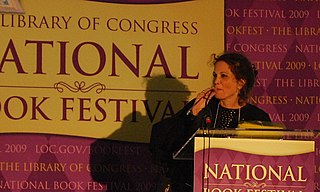A Quote by E. M. Forster
It is obvious enough for the reader to conclude, "She loves young Emerson." A reader in Lucy's place would not find it obvious. Life is easy to chronicle, but bewildering to practice, and we welcome "nerves" or any other shibboleth that will cloak our personal desire. She loved Cecil; George made her nervous; will the reader explain to her that the phrases should have been reversed?
Related Quotes
The most difficult part of writing a book is not devising a plot which will captivate the reader. It's not developing characters the reader will have strong feelings for or against. It is not finding a setting which will take the reader to a place he or she as never been. It is not the research, whether in fiction or non-fiction. The most difficult task facing a writer is to find the voice in which to tell the story.
She had always been a reader… but now she was obsessed. Since her discovery of the book hoard downstairs from her job, she’d been caught up in one such collection of people and their doings after the next…The pleasure of this sort of life – bookish, she supposed it might be called, a reading life – had made her isolation into a rich and even subversive thing. She inhabited one consoling or horrifying persona after another…That she was childless and husbandless and poor meant less once she picked up a book. Her mistakes disappeared into it. She lived with an invented force.
You cannot hammer a girl into anything. She grows as a flower does, she will wither without sun; she will decay in her sheath as a narcissus will if you do not give her air enough; she might fall and defile her head in dust if you leave her without help at some moments in her life; but you cannot fetter her; she must take her own fair form and way if she take any.
SHE is neither pink nor pale, And she never will be all mine; She learned her hands in a fairy-tale, And her mouth on a valentine. She has more hair than she needs; In the sun ’tis a woe to me! And her voice is a string of colored beads, Or steps leading into the sea. She loves me all that she can, And her ways to my ways resign; But she was not made for any man, And she never will be all mine.
Tessa had begun to tremble. This is what she had always wanted someone to say. What she had always, in the darkest corner of her heart, wanted Will to say. Will, the boy who loved the same books she did, the same poetry she did, who made her laugh even when she was furious. And here he was standing in front of her, telling her he loved the words of her heart, the shape of her soul. Telling her something she had never imagined anyone would ever tell her. Telling her something she would never be told again, not in this way. And not by him. And it did not matter. "It's too late", she said.
Explaining is a difficult art. You can explain something so that your reader understands the words; and you can explain something so that the reader feels it in the marrow of his bones. To do the latter, it sometimes isn't enough to lay the evidence before the reader in a dispassionate way. You have to become an advocate and use the tricks of the advocate's trade.
She didn't give George any too easy a time when she was alive. She was one of those semi-invalids – I believe she had really something wrong with her, but whatever it was she played it for all it was worth. She was capricious, exacting, unreasonable. She complained from morning to night. George was expected to wait on her, hand and foot and everything he did was always wrong and he got cursed for it. Most men, I'm fully convinced, would have hit her with a hatchet long ago.
She'd assumed she'd be married and have kids by this age, that she would be grooming her own daughter for this, as her friends were doing. She wanted it so much she would dream about it sometimes, and then she would wake up with the skin at her wrists and neck red from the scratchy lace of the wedding gown she'd dreamed of wearing. But she'd never felt anything for the men she'd dated, nothing beyond her own desperation. And her desire to marry wasn't strong enough, would never be strong enough, to allow her to marry a man she didn't love.
George had turned at the sound of her arrival. For a moment he contemplated her, as one who had fallen out of heaven. He saw radiant joy in her face, he saw the flowers beat against her dress in blue waves. The bushes above them closed. He stepped quickly forward and kissed her. Before she could speak, almost before she could feel, a voice called 'Lucy! Lucy! Lucy!' The silence of life had been broken by Miss Bartlett, who stood brown against the view.
The book is finished by the reader. A good novel should invite the reader in and let the reader participate in the creative experience and bring their own life experiences to it, interpret with their own individual life experiences. Every reader gets something different from a book and every reader, in a sense, completes it in a different way.





































